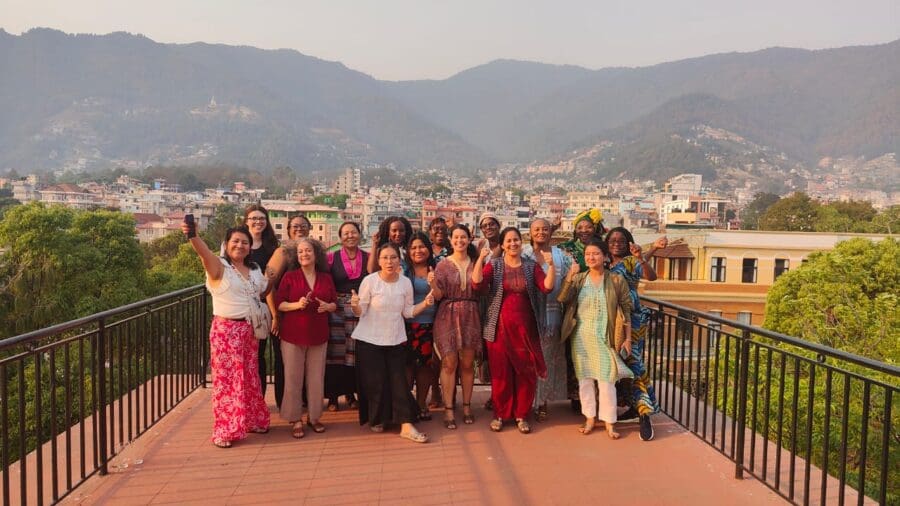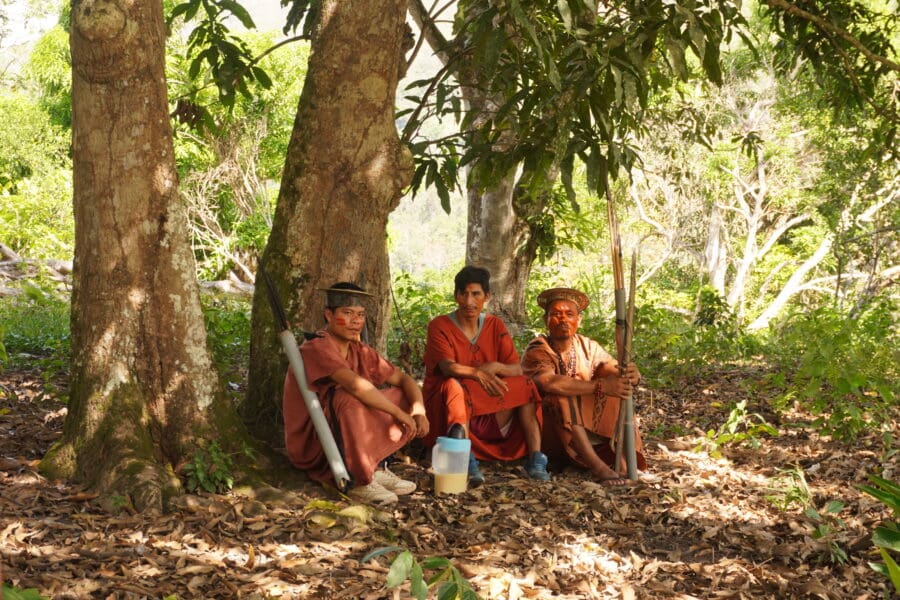After decades of being omitted from the UN’s biodiversity convention, Afro-descendant Peoples in Latin America and the Caribbean got great news at the 16th Conference of the Parties to the UN Convention on Biological Diversity (CBD) recently held in Cali, Colombia.
Presented as the “CoP of the People,” the summit in Cali will be remembered not just for securing a position for Indigenous Peoples and local communities in a permanent working group in CBD negotiations, but also for giving long-due recognition to Afro-descendant Peoples (ADPs) as key actors in the conservation of global biodiversity. Representatives of these groups will now become part of a subsidiary body within the CBD Convention’s Article 8J, with political influence in the negotiations and access to international funding.
Before this agreement, the CBD framework did not identify people of African descent alongside “local communities” and “Indigenous Peoples,” rendering their role in protecting biodiversity in their ancestral lands invisible.
“The lengthy debates over 12 days of the CoP are a small part of the struggle that has preceded it. This is a hard-won victory for the Afro-descendant movement, which the Rights and Resources Initiative is proud to have been part of for 15 years,” said Dr. Solange Bandiaky-Badji, President and Coordinator of the Rights and Resources Initiative (RRI). “Afro-descendant Peoples have historically not been recognized by the UN framework for implementing its Convention and in the conservation and sustainable use of biodiversity, and while a lot more needs to be done to recognize and implement their rights, this is an important first step to change that.”
RRI’s Latin America program, led by Dr. Omaira Bolaños, has supported this movement for 15 years by helping to craft advocacy strategies, mapping Afro-descendant Peoples’ territorial presence, and collecting crucial data to inform policymakers and the international community of their important role in conservation and climate action.
To address their omission in global biodiversity and climate discussions, RRI also facilitated a regional coalition of 18 organizations from 10 countries to formally call for a seat at the table, called the Coalition for the Environmental Territorial Rights of Afro-descendant Peoples of Latin America and the Caribbean.
Why does this decision matter for our planet? According to the most recent government estimates, Afro-descendant Peoples represent 24 percent of the total population of Latin America and the Caribbean. However, only six countries legally recognise 8.3 million hectares (24 percent) of their collective territories.
This data comes from the Afro-descendant Atlas, a result of a collective mapping effort led by RRI, Proceso De Comunidades Negras (PCN), Coordenação Nacional de Articulação das Comunidades Negras Rurais Quilombolas (CONAQ), and the Pontifical Universidad Javeriana’s Observatory of Ethnic and Campesino Territories (OTEC). This mapping spanned three years of collective work by Afro-descendant grassroots organizations, and documents for the first time collectively owned Afro-descendant territories in 15 countries in Latin America and the Caribbean.
Afro-descendant territories are hotspots for biodiversity conservation according to a 2023 study, and face growing threats from mining, illegal deforestation, and the effects of climate change. Experts predict that over three-fourths of them will suffer a temperature increase of over 7°C. At the same time, the study characterizes Afro-descendant Peoples settled in these territories as “communities that conserve ecosystems” as 83 percent of their identified and titled territories display a high degree of conservation, and 72 percent of their demarcated lands show a high level of forest conservation.
Lack of legal recognition, however, makes their lands more vulnerable to encroachment and extraction. Only four countries—Colombia, Ecuador, Honduras, and Bolivia—have developed specific tenure regimes to recognize Afro-descendant Peoples’ collective property and land-use rights.
We extend our heartfelt congratulations to leaders of the International Afro-descendant Coalition and our Latin America coalition members on this achievement. We also extend our appreciation to Colombia’s Vice-President and Minister of Equality and Equity, Francia Marquez; the Minister of Environment and Sustainable Development, Susana Muhamad; and Minister of Foreign Affairs, Luis Gilberto Murillo who, in alliance with the Government of Brazil, promoted the initiative to make this recognition in the CBD a reality.
As we continue to support additional mapping of Afro-descendant Peoples’ presence in the Caribbean in 2025, we reaffirm RRI’s commitment to advancing Afro-descendant Peoples’ rights and conservation efforts and invite all of their grassroots organizations and other countries in the region to join us in this commitment.




